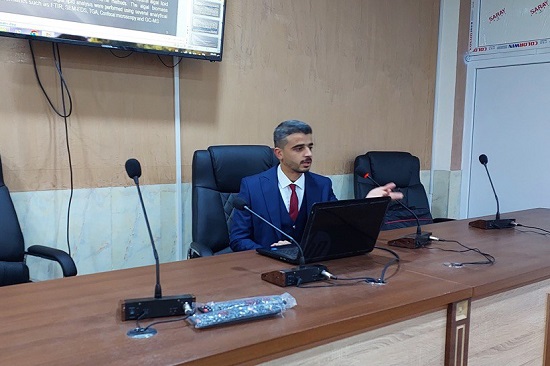| News Details |
Panel Discussion Entitled: (Extraction of Biofuels from Algae)
2024-12-26

In continuation of the events and activities held by the Upper Euphrates Centre for Sustainable Development at the University of Anbar, especially the campaign called for by the Centre’s management to improve research awareness among new recruits, Assistant Instructor Ghazwan Adel Abdul Wahed, one of the centre’s researchers, moderated a panel discussion on: (Extraction of biofuels from algae), on Sunday, 22/12/2024, at the main hall of the centre.
The panel discussion revolved around (biofuels), which is an alternative to fossil fuels and a solution to the problem of algae and the consequent pollution and evaporation, and this type of fuel is promising because it provides a sustainable and environmental alternative solution to fossil fuels, which is produced using microalgae as an energy source is a fuel produced from different types of algae by converting them into oil that can be used in power generation or as a source of liquid fuel such as biodiesel or ethanol, Oil is found in many plants, but the type and quantity of oil vary from one variety to another, as well as the costs of providing these oils, so algae were chosen because they have high productivity and great speed of growth compared to other plants, as they can produce large amounts of oil in a short period of time, less land consumption, as algae can be grown in environments unsuitable for traditional agriculture (such as salt water or even in treated water), which reduces land depletion Agricultural, as well as low-carbon as algae contribute to reducing greenhouse gas emissions as they absorb carbon dioxide as they grow and reduce global warming.
#Upper_Euphrates_Basin_Developing_Center









